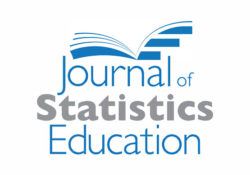
tandfonline.com har udgivet en rapport under søgningen “Teacher Education Mathematics”: Abstract Abstract Over the last two decades, statistics educators have made important changes to introductory courses. Current guidelines emphasize developing statistical thinking in students and exposing them to the entire investigative process in the context of interesting research questions and real data. As a result, many concepts (confounding, multivariable models, study design, etc.) previously reserved only for higher-level courses now appear in introductory courses. Despite these changes, causality is rarely discussed in introductory courses, except for warning students “correlation does not imply causation” or covering the special case of randomized controlled experiments. In this article, we argue causal inference concepts align well with statistics education guidelines for introductory courses by developing statistical and multivariable thinking, exposing students to many aspects… Continue Reading →
Like this:
Like Loading...
tandfonline.com har udgivet en rapport under søgningen “Teacher Education Mathematics”: Abstract Formulae display:?Mathematical formulae have been encoded as MathML and are displayed in this HTML version using MathJax in order to improve their display. Uncheck the box to turn MathJax off. This feature requires Javascript. Click on a formula to zoom. Abstract Basic knowledge of ideas of causal inference can help students to think beyond data, that is, to think more clearly about the data generating process. Especially for (maybe big) observational data, qualitative assumptions are important for the conclusions drawn and interpretation of the quantitative results. Concepts of causal inference can also help to overcome the mantra “Correlation does not imply Causation.” To motivate and introduce causal inference in introductory statistics or data science courses, we use simulated data… Continue Reading →
Like this:
Like Loading...

tandfonline.com har udgivet en rapport under søgningen “Teacher Education Mathematics”: Abstract Formulae display:?Mathematical formulae have been encoded as MathML and are displayed in this HTML version using MathJax in order to improve their display. Uncheck the box to turn MathJax off. This feature requires Javascript. Click on a formula to zoom. Abstract Since the publishing of Nolan and Temple Lang’s “Computing in the Statistics Curriculum” in 2010, the American Statistical Association issued new recommendations in the revised GAISE College report. To reflect modern practice and technologies, they emphasize giving students experience with multivariable thinking. Students develop multivariable thinking when they analyze real data in the context of investigating research questions of interest, which typically involve complex relationships between many variables. Proficiency in a statistical programming language facilitates the development of… Continue Reading →
Like this:
Like Loading...


